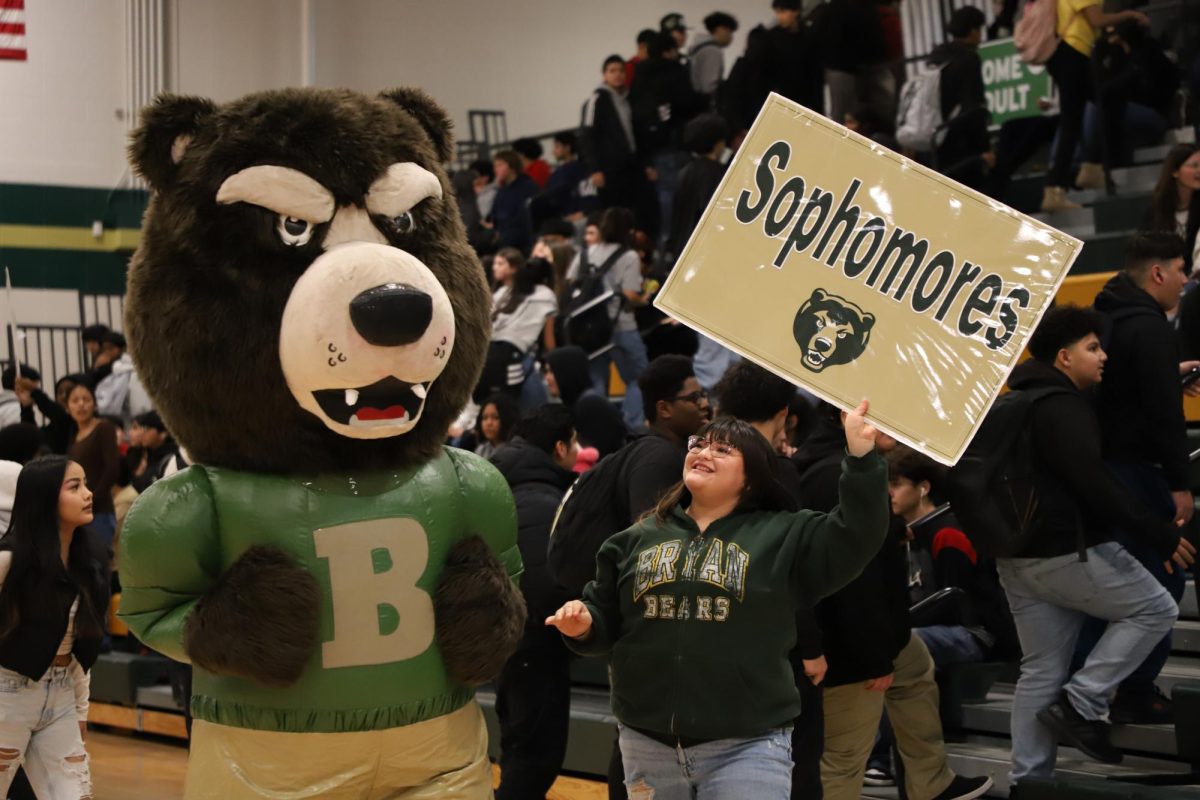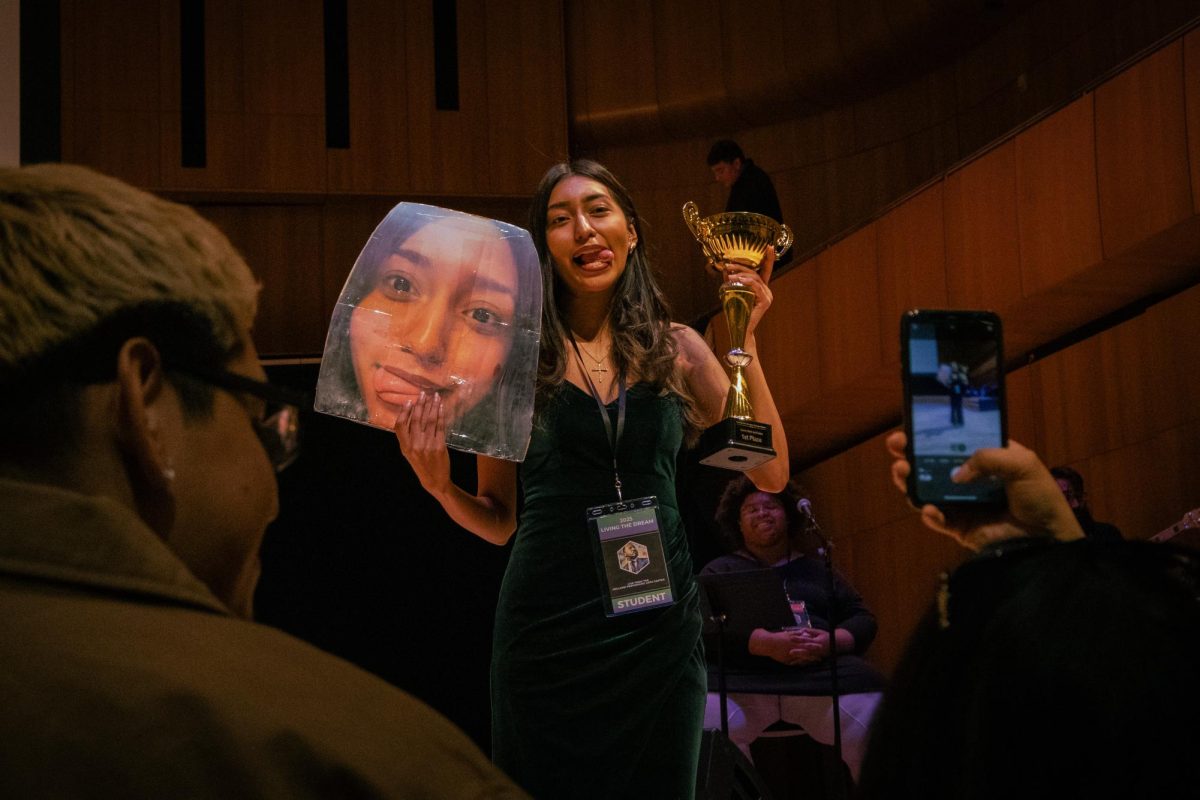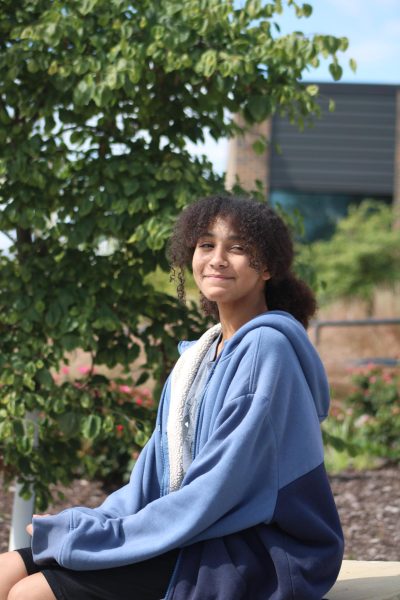Students and staff are coming together to brainstorm ideas on improving school spirit.
Principal Anthony (CK) Clark-Kaczmarek believes the term “school spirit” is difficult to define, as it is subjective.
“Sometimes people, when they talk about school spirit, they mean, ‘How many people come to events?’” CK said. “Sometimes it means, ‘How many kids are participating in the Spirit Weeks?’ Sometimes it means, ‘How many kids are outside of this building, standing up for Bryan High in a positive way whenever they’re out talking to their friends?’”
The main reason some students feel there is a lack of spirit is that they do not see school as a place where one can enjoy themselves.
“I think we need to put a lot more emphasis on letting teens be kids because, even with teachers, sometimes I feel like they don’t see us as kids anymore,” said junior Maizie Sayles. “They see us as adults that already have our lives figured out, and [it feels] like ‘Why aren’t you getting your work done? You should know this,’ and [I feel like telling them] ‘Let us be kids and let yourself be a kid.’”
Some teachers believe the problem boils down to students being less inclined to Attend sporting events if only adults are telling them to.
“One thing that we are working on right now for Student Council is creating a Spirit Squad, which is going to be a group of kids who are in charge of making sure that things [pep rallies, encouraging students to participate, etc.] are being taken care of for all the games [sporting events],” said Allen. “I just feel like if we have maybe even 10 or 15 kids that are saying, ‘Hey, let’s be there,’ ‘Hey, I’ll see you there,’ there’ll be more kids that come in [to watch games].”
CK also notes that lack of communication and publicity leaves room for confusion about when Spirit Weeks occur and what they entail.
“If I’m being really honest, I don’t think they [students] remember,” CK said. “I don’t think the word is out there big enough. You would have more people participate if, in the morning time, they knew, ‘Oh, right. Today’s wear green day. I could throw on something green,’ but I think they just get up, and they don’t think about it.”
AP English teacher Ilene Sigman implements the idea of reminding students to participate in her classes by giving them an incentive for joining in school spirit events and extra-curricular activities.
“I believe that there is a desire for a fun experience —to invite kids to bond over something fun, something silly,” Sigman said, “and it becomes a little bit disheartening when there’s planning involved in this thing [event, challenge etc.], and no one does it. So, a few years ago, I decided that I wanted to make it [student participation] more of a thing.”
Sigman has created a house-point system (similar to that of Harry Potter), awarding her students who participate in Spirit Weeks and other events around the school. The house with the most points will be exempt from the current final each semester.
“It’s important that students collaborate and that they work in teams, that they have a common goal and that they’re proud of what they’re part of,” Sigman said. “My hope is that if more of my students get engaged with the Spirit Week, then and that’s a physical difference in the hallway, maybe peers outside of just my classes will get into it as well.”
Sayles is adamant about student participation. Being in Sigman’s class, she works to get as many points as possible for the Water Bears (Tardigrades).
“Someday, all of us, we’re going to be 80 years old, looking back on our lives, and we’re not going to be like, ‘Oh, man, I wish I hadn’t worn that feather boa. That was so embarrassing,’” Sayles said. “We’re going to be like, ‘Darn, I wish that when I was young and able to do things, I wasn’t afraid to be a little embarrassed and [that] I went to a football game and screamed my lungs out because our team was winning.’ I want people to be able to look back at their youth and think, ‘I’m glad I didn’t waste my time.’”




